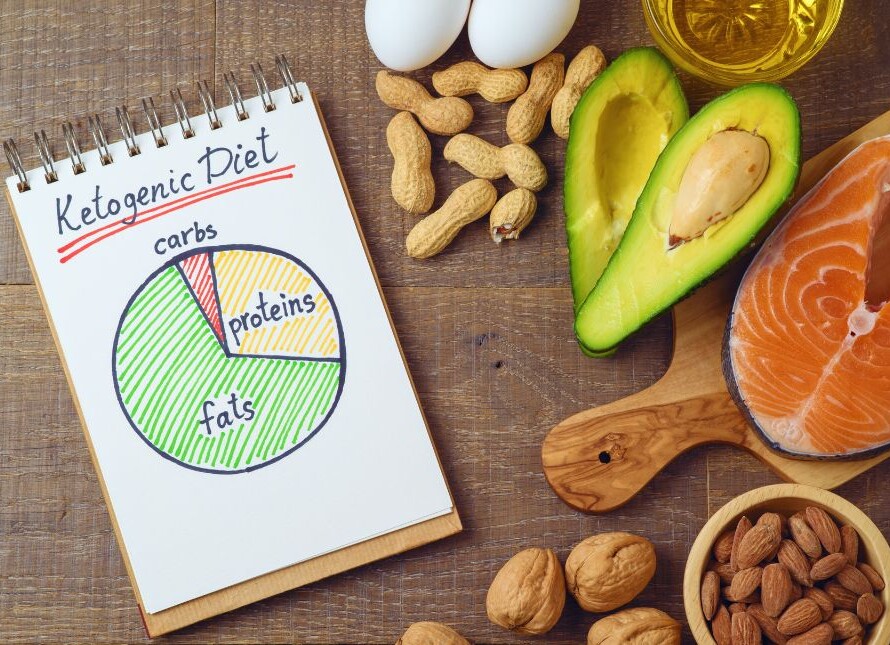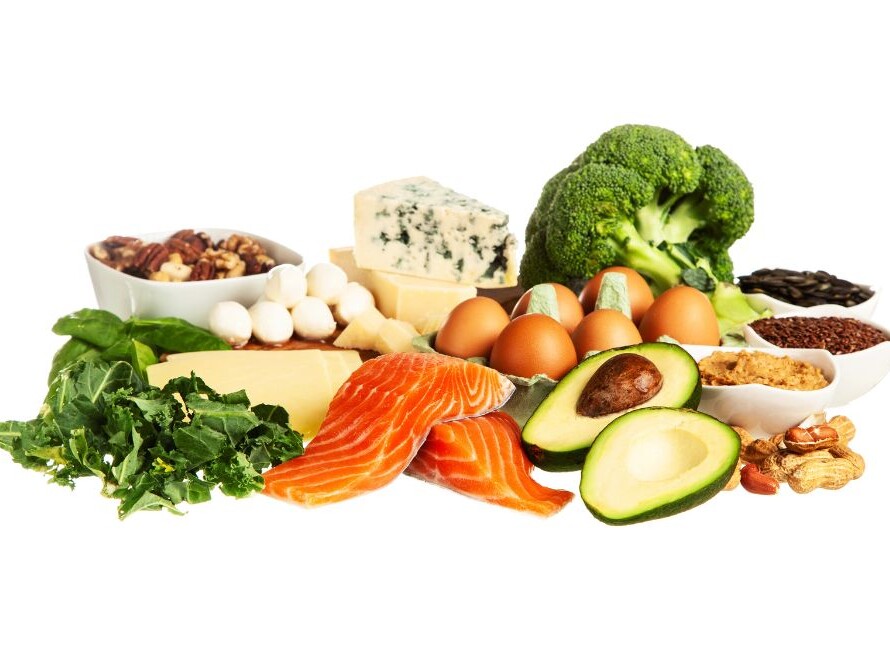Written by Dr Monique Hope-Ross and Dr Paul Chell
Fasting is as old as the hills. In 400 BC, Plato fasted for greater mental and physical efficiency, and Hippocrates famously said, “Everyone has their own physician inside them,” referring to the benefits of fasting. Wise words indeed. However, fasting is no longer part of our culture. Today, we are subject to constant bombardment to eat. We eat to celebrate, for a treat, and often six times per day. Mobile food diary apps show that most people eat from dawn until dusk, usually every two hours.
How did we change from eating one meal a day, as they did in Roman times, to snacking every two hours? The mantra of three meals a day is an entirely modern construct. The word breakfast, literally meaning ‘to break the night’s fast’, only entered the English language in the Middle Ages. Breakfast became ubiquitous only during the industrial revolution. The behemoths of the food industry shower us with messages telling us to enjoy healthy snacks. Breakfast is lauded as the most important meal of the day, and the phrase “Eat a Good Breakfast-Do a Better Job” launched many breakfast cereals onto our plates. Our culture revolves around continual eating, which is considered by most people to be an entirely healthy choice. But science shows this is far from the truth.
Here, we will explore how the ancient practice of fasting can be a healthy addition to anyone’s nutrition plan. What you eat matters, but when you eat is equally important. Although some view fasting as dangerous and unnecessary, scientific facts show that intermittent fasting brings regeneration and repair along with weight loss and huge health benefits. The longevity movement now extols fasting as a means of slowing and reversing the aging process.

What is Intermittent Fasting?
Intermittent fasting is an approach, where you cycle between periods of fasting and eating. Intermittent fasting is concerned with when you eat. By restricting the eating window, it optimises the body’s metabolism, promotes weight loss, and enhances overall health.
Verified Source
Patterson RE, Sears DD. Metabolic Effects of Intermittent Fasting. Annu Rev Nutr. 2017 Aug 21;37:371-393. doi: 10.1146/annurev-nutr-071816-064634. Epub 2017 Jul 17. PMID: 28715993
Go to sourceDuring the fasting periods, you do not eat anything. You may drink water, black coffee, and black or green tea.
Popular Methods of Intermittent Fasting
- Time-Restricted Eating: This method reduces the eating window (EatSpan) and extends the fasting window (FastSpan) within a 24-hour period. There are multiple variations, depending on the durations of EatSpan and FastSpan. Examples include a 20/4 with a FastSpan of 20 hours and an EatSpan of 4 hours, or a 18/6 with a FastSpan of 18 hours and an EatSpan of 6 hours.
- The 16/8 Method: This is the most popular method of intermittent fasting because it is relatively easy to achieve. It involves a FastSpan of 16 hours and an EatSpan of 8 hours. For example, you might eat from 11.00 am to 19.00 and then fast until 11am, the next day. You can shift the EatSpan to earlier in the day, making it more flexible to fit into your life.
- 5:2 Method: In this approach, you eat normally for five days a week and fast on the other two days. This method is appealing because it allows for normal eating most of the week, making it easier to stick with long-term. Some proponents allow restricted consumption of food on fasting days.
- Alternate-Day Fasting: As the name suggests, this method alternates between days of normal eating and days of fasting.
- Fasting: The nirvana for many, fasting for extended periods of time, with fasts extending for many days.

Health Benefits of Intermittent Fasting
Intermittent fasting offers many health benefits, supported by numerous scientific studies
Verified Source
Reddy BL, Reddy VS, Saier MH Jr. Health Benefits of Intermittent Fasting. Microb Physiol. 2024 Jul 2. doi: 10.1159/000540068. Epub ahead of print. PMID: 38955141.
Go to sourceWeight Loss: By restricting the eating window, intermittent fasting promotes weight loss. It improves metabolism, reduces inflammation and helps to preserve muscle mass
Verified Source
Khalafi M, Habibi Maleki A, Symonds ME, Rosenkranz SK, Rohani H, Ehsanifar M. The effects of intermittent fasting on body composition and cardiometabolic health in adults with prediabetes or type 2 diabetes: A systematic review and meta-analysis. Diabetes Obes Metab. 2024 Jul 2. doi: 10.1111/dom.15730. Epub ahead of print. PMID: 38956175.
Go to sourceMetabolic Health: Fasting leads to increased fat metabolism, which generates ketone bodies, these have positive effects on metabolism. During fasting, insulin levels drop, due to the absence of food, and reducing insulin resistance. Your improved insulin sensitivity results in better management of carbohydrates, when you return to eating, leading to overall better metabolic health.
Verified Source
Diab R, Dimachkie L, Zein O, Dakroub A, Eid AH. Intermittent Fasting Regulates Metabolic Homeostasis and Improves Cardiovascular Health. Cell Biochem Biophys. 2024 Jun 7. doi: 10.1007/s12013-024-01314-9. Epub ahead of print. PMID: 38847940.
Go to sourceReduced visceral fat: Intermittent fasting is particularly effective at targeting harmful belly fat, which secretes inflammatory chemicals that impair metabolism. Reducing visceral fat means lowering these inflammatory chemicals, improving blood sugar control and overall metabolism.
Verified Source
Reddy BL, Reddy VS, Saier MH Jr. Health Benefits of Intermittent Fasting. Microb Physiol. 2024 Jul 2. doi: 10.1159/000540068. Epub ahead of print. PMID: 38955141.
Go to sourceReduced Inflammation: Intermittent fasting has been shown to reduce markers of inflammation, which is beneficial in managing chronic inflammatory conditions such as arthritis and asthma.
Verified Source
Diab R, Dimachkie L, Zein O, Dakroub A, Eid AH. Intermittent Fasting Regulates Metabolic Homeostasis and Improves Cardiovascular Health. Cell Biochem Biophys. 2024 Jun 7. doi: 10.1007/s12013-024-01314-9. Epub ahead of print. PMID: 38847940.
Go to sourceImproved Heart Health: Intermittent fasting can help improve several risk factors for heart disease, including blood sugar levels, cholesterol, triglycerides, and inflammatory markers. These improvements lead to a reduced risk of heart disease.
Verified Source
Hailu KT, Salib K, Savithri Nandeesha S, Kasagga A, Hawrami C, Ricci E, Hamid P. The Effect of Fasting on Cardiovascular Diseases: A Systematic Review. Cureus. 2024 Jan 30;16(1):e53221. doi: 10.7759/cureus.53221. PMID: 38425626; PMCID: PMC10902743
Go to sourceBrain Health: Fasting promotes the production of brain-derived neurotrophic factor (BDNF), a protein linked to cognitive improvement and the growth of new neurons. Some studies suggest that intermittent fasting may enhance brain function and reduce the risk of neurodegenerative diseases like Alzheimer’s disease.
Verified Source
Sharifi S, Rostami F, Babaei Khorzoughi K, Rahmati M. Effect of time-restricted eating and intermittent fasting on cognitive function and mental health in older adults: A systematic review. Prev Med Rep. 2024 May 9;42:102757. doi: 10.1016/j.pmedr.2024.102757. PMID: 38774517; PMCID: PMC11107340
Go to sourceReduced Oxidative Stress: Inflammation and wear and tear generate reactive oxidative species, which can aggravate cell damage, promote aging, and increase inflammation. Fasting reduces these harmful molecules by increasing the production of antioxidants, thus reducing oxidative stress.
Verified Source
Grundler F, Mesnage R, Goutzourelas N, Tekos F, Makri S, Brack M, Kouretas D, Wilhelmi de Toledo F. Interplay between oxidative damage, the redox status, and metabolic biomarkers during long-term fasting. Food Chem Toxicol. 2020 Nov;145:111701. doi: 10.1016/j.fct.2020.111701. Epub 2020 Aug 25. PMID: 32858131; PMCID: PMC7446623.
Go to sourceBetter cellular health: Fasting promotes the renewal of mitochondria and the production of new mitochondria. These essential energy-making powerhouses in our cells wear out over time, and restoring tired, worn-out mitochondria is key to better aging and improved cellular health.
Verified Source
Khalafi M, Habibi Maleki A, Symonds ME, Rosenkranz SK, Rohani H, Ehsanifar M. The effects of intermittent fasting on body composition and cardiometabolic health in adults with prediabetes or type 2 diabetes: A systematic review and meta-analysis. Diabetes Obes Metab. 2024 Jul 2. doi: 10.1111/dom.15730. Epub ahead of print. PMID: 38956175.
Go to sourceLongevity: Reproducible animal studies have shown that intermittent fasting can extend lifespan. While more research is needed in humans, findings so far are very promising and suggest that intermittent fasting promotes longevity.
Verified Source
Khalafi M, Habibi Maleki A, Symonds ME, Rosenkranz SK, Rohani H, Ehsanifar M. The effects of intermittent fasting on body composition and cardiometabolic health in adults with prediabetes or type 2 diabetes: A systematic review and meta-analysis. Diabetes Obes Metab. 2024 Jul 2. doi: 10.1111/dom.15730. Epub ahead of print. PMID: 38956175.
Go to sourceHow intermittent fasting works
The concept behind intermittent fasting is that by restricting food intake, the body is more likely to use stored fat for energy. When you eat a meal, your body uses glucose from carbohydrates as its primary energy source. However, during fasting periods, once the carb stores have been used, the body turns to fat stores for energy, promoting fat loss.
Additionally, intermittent fasting triggers several metabolic changes in the body. These include increased production of noradrenaline (a hormone that boosts metabolism), improved insulin sensitivity (leading to better blood sugar control), and enhanced cellular repair processes such as autophagy, where cells remove damaged components and regenerate.
Intermittent Fasting versus Calorie Restriction in Weight Loss
Intermittent fasting is very different to calorie restriction diets ,where there is a long-term reduction of 20-40% or even more in calories. In calorie restriction, your hormones slow your body down, reduce your body temperature and reduce your metabolism or basal metabolic rate. Your hormones perceive a threat of starvation and a need to conserve energy. Your hormones shut down non-vital processes. Over time, the weight loss grinds to a halt. Your basal metabolic rate, an indication of your metabolism may remain diminished, even when you start to eat normally.
In contrast, intermittent fasting exhibits a very different hormonal profile. Instead of slowing your body down, it promotes repair and regeneration. Fasting increases stress resistance, suppresses inflammation, and improves glucose control. These beneficial metabolic changes continue even after the fasting period ends.
Intermittent Fasting Practical Tips for Success
For those interested in trying intermittent fasting, here are some practical tips:
- Fat adapt before you start: Being fat adapted is the key to successful fasting. See Fat adaptation blog. This means to be able to use fat, rather than carbs to fuel your body. If you have a diet that is predominantly composed of carbohydrate, your fat fuelling pathways gradually become redundant, and it takes some time to restart these pathways. The complex process requires genes to be turned on, new proteins to be constructed, and enzymes produced, so that fat can enter the mitochondria in your cells and then be used to keep the cells stocked with energy.
- Start Gradually: When you are new to intermittent fasting, it helps to start with shorter fasting periods and gradually increase the duration of your fasts. Skipping breakfast is a good way to start.
- Stay Hydrated: Drink plenty of water, green, white and herbal teas (no added sugar), and black coffee to stay hydrated during fasting periods.
- Choose healthy Foods: During eating windows, focus on real foods like fruits, vegetables, whole grains, lean proteins, and healthy fats to ensure you get essential nutrients.
- Be Flexible: Choose an intermittent fasting method that fits your lifestyle and schedule. Flexibility will increase your chances of sticking with it long-term.
- Intermittent fasting is safe: Our ancestors were able to fast successfully, and as we inherited their genes, we have the machinery to fast-it just may need to be reawakened. Intermittent fasting it may not be suitable for everyone, and it is not suitable for children or adolescents. Those who are pregnant, breast feeding, have certain medical problems, or those on medications, should seek advice before starting.
Conclusion
Intermittent fasting is a powerful approach that offers numerous health benefits, including weight loss, improved metabolic health, reduced inflammation, better heart and brain health, and potentially increased longevity.
Verified Source
Reddy BL, Reddy VS, Saier MH Jr. Health Benefits of Intermittent Fasting. Microb Physiol. 2024 Jul 2. doi: 10.1159/000540068. Epub ahead of print. PMID: 38955141.
Go to source



